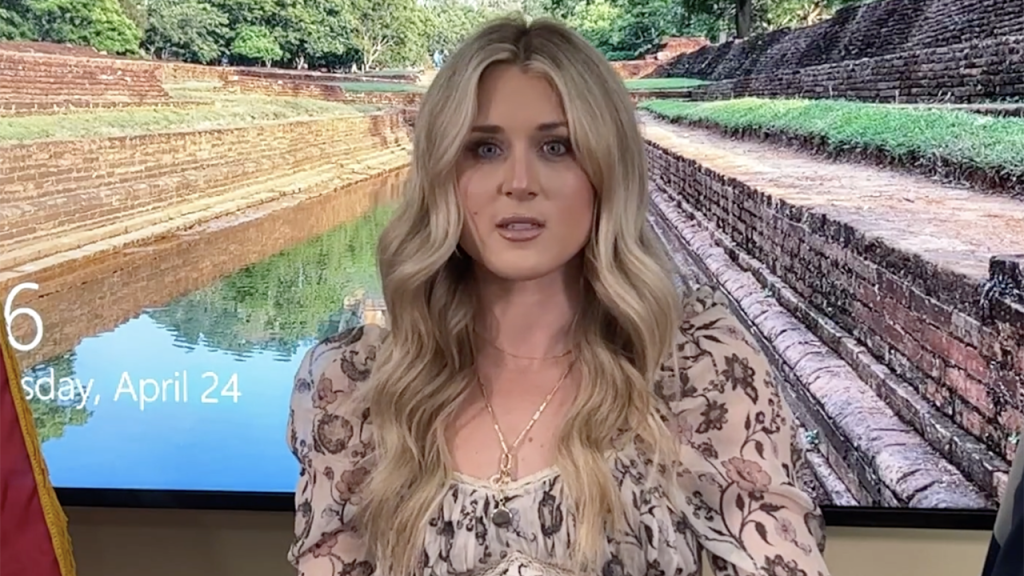Riley Gaines, a former collegiate swimmer and advocate for fairness in women’s sports, commended a group of middle school girls in West Virginia who refused to compete against a transgender athlete in shot put and discus events. The girls, aged 13 and 14, took a stand to advocate for their rights to quality opportunity, safety, and privacy, which they believe are threatened by recent legal rulings. Gaines expressed pride and inspiration in the girls for standing up for themselves in the face of controversy.
Attorney General Patrick Morrisey of West Virginia, who has been vocal in his support of the Save Women’s Sports Act, also praised the actions of the middle school girls. He emphasized the importance of defending the integrity of women’s sports and preventing biological males from competing against biological females, noting the inherent physical advantages that males may have. Morrisey announced plans to take the state’s case to the Supreme Court in order to challenge the 4th U.S. Circuit Court of Appeals’ ruling that struck down the Save Women’s Sports Act.
The Save Women’s Sports Act, signed into law in 2021, required student-athletes to compete based on their biological gender. However, the law was challenged on constitutional grounds, leading to legal battles in the courts. Despite initially receiving support from U.S. District Judge Joseph Goodwin, the law faced opposition and was eventually struck down by the 4th U.S. Circuit Court of Appeals. This decision has sparked further debates and actions to protect the rights of biological female athletes.
In a separate incident, a transgender girl in Oregon was allowed to compete against girls in track and field events, further fuelling the ongoing debate around transgender athletes in women’s sports. The Supreme Court refused to intervene in this case, allowing the transgender girl to continue competing with biological females. This decision has raised concerns about whether transgender athletes have an unfair advantage due to physiological differences, such as size, strength, and speed.
The debate around transgender athletes and women’s sports continues to be a contentious issue, with advocates on both sides presenting their arguments. While some believe in the importance of inclusivity and acceptance for transgender individuals, others are concerned about the potential impact on the fairness and integrity of women’s sports. The actions of the middle school girls in West Virginia have highlighted the complexities of these issues and the need for ongoing discussions and legal interventions to address them.
Overall, the efforts of Riley Gaines, Attorney General Patrick Morrisey, and other supporters of the Save Women’s Sports Act demonstrate a commitment to protecting the rights and opportunities of biological female athletes. The legal battles surrounding this issue reflect broader societal debates about gender identity, equality, and fairness in sports. As the debate continues to evolve, it remains important to consider the perspectives and experiences of all individuals involved in order to reach fair and equitable solutions for women’s sports.


